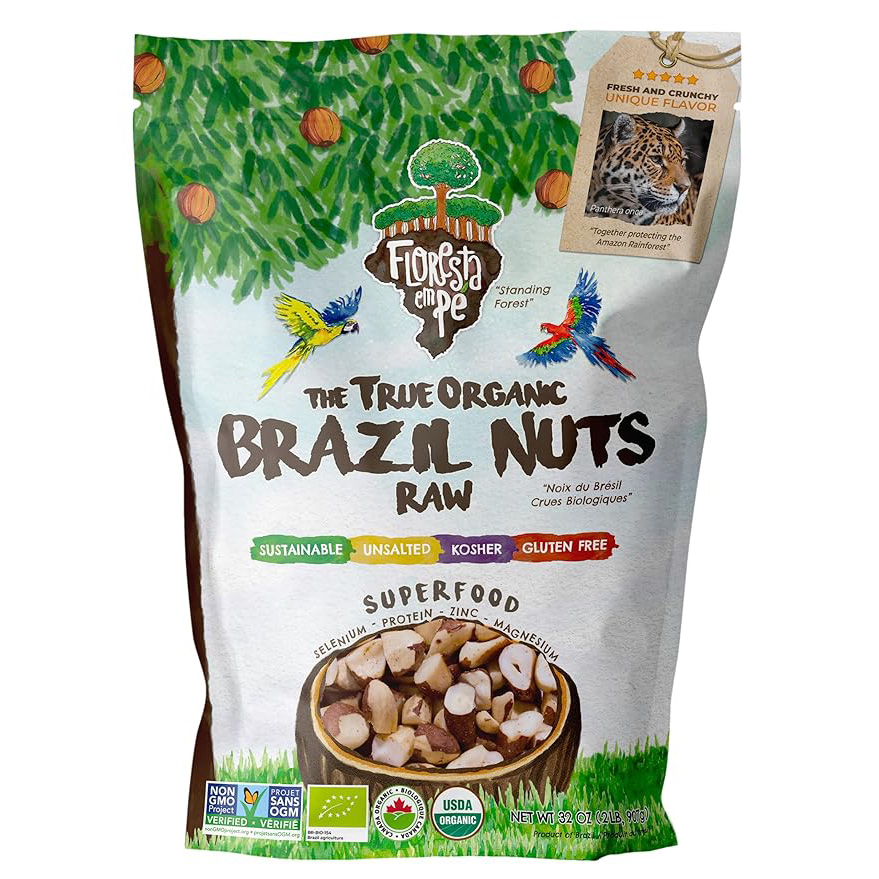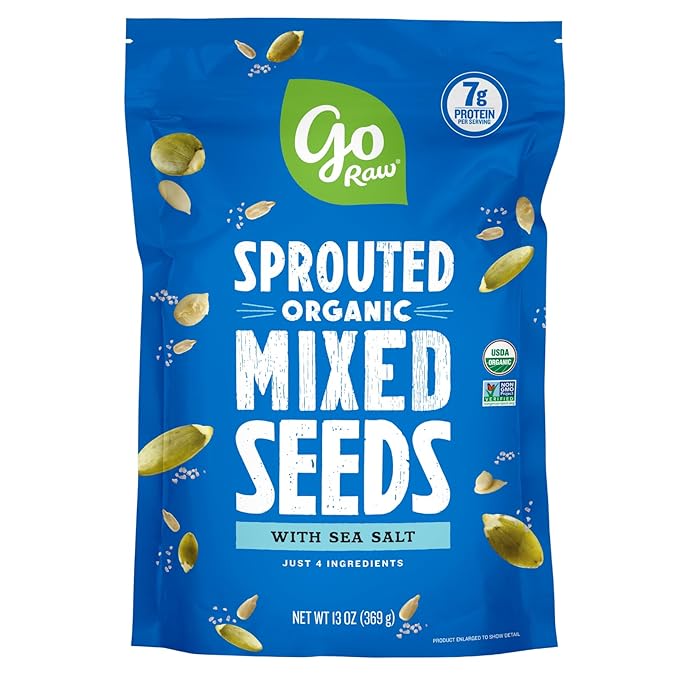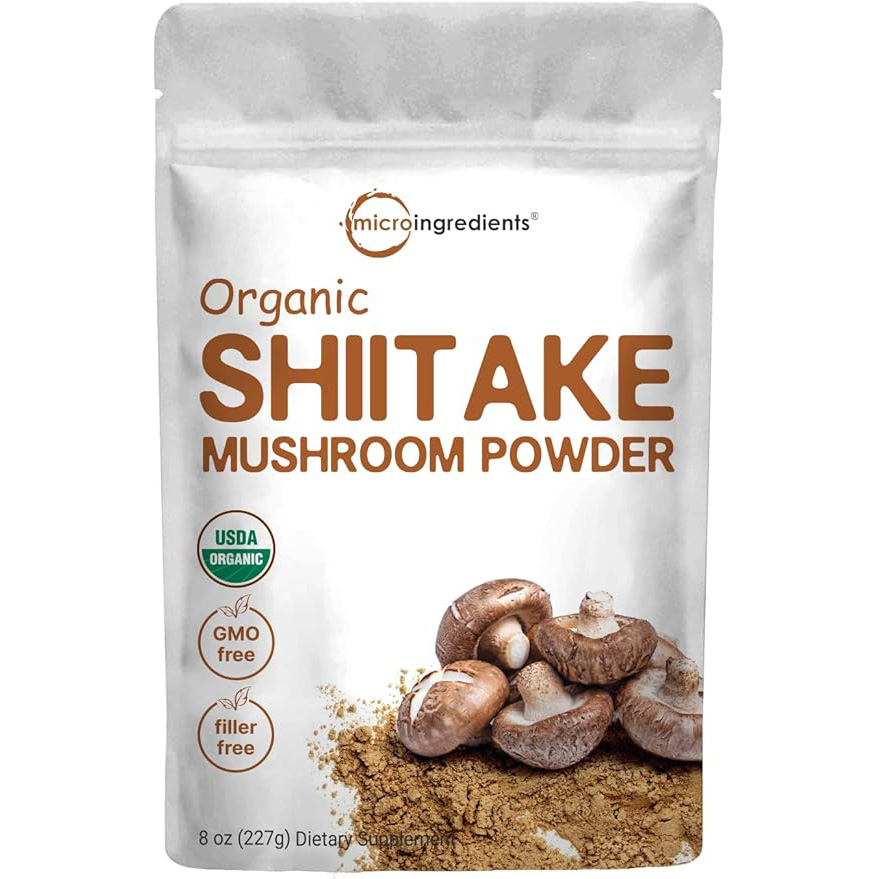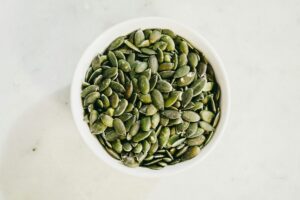Every morning, we each eat one Brazil nut. That’s it—just one. It’s a simple little habit that feels almost too easy, but it’s become a daily act of nourishment. Brazil nuts are one of the richest natural sources of selenium, and just a single nut can meet or exceed your daily needs. We started doing it for thyroid and immune support, but now it’s just part of the rhythm—like morning chores or feeding the sourdough starter. When it comes to minerals like selenium, a little goes a long way.
Selenium might not be as famous as magnesium or zinc, but this trace mineral is essential for thyroid health, immune function, and powerful antioxidant protection. Anytime I’m starting to feel icky, I reach for some selenium-packed foods.
Many people don’t get enough due to modern farming practices depleting soil minerals, yet selenium plays a crucial role in detoxification, inflammation control, and even cognitive function. If you’re feeling sluggish, dealing with brain fog, or experiencing thyroid imbalances, selenium could be the missing link.
This guide covers everything you need to know about selenium benefits, best food sources, and how to optimize absorption naturally.
What Does Selenium Do For the Body?
Selenium is involved in multiple biological processes, making it a powerhouse mineral for overall health:
- Supports Thyroid Function – Selenium is required for T4 (inactive thyroid hormone) conversion into T3 (active thyroid hormone), making it essential for metabolism and energy production.
- Boosts the Immune System – It enhances white blood cell production and reduces inflammation, helping the body fight infections.
- Powerful Antioxidant Defense – Selenium is a key component of glutathione peroxidase, one of the body’s most potent antioxidant systems that protects cells from oxidative stress.
- Aids in Detoxification – Selenium binds to and neutralizes toxic heavy metals like mercury, arsenic, and lead, supporting liver and kidney detox pathways.
- Improves Cognitive Function & Mood – Low selenium levels have been linked to brain fog, anxiety, and depression due to its role in neurotransmitter function.
- Supports Reproductive Health – Plays a role in sperm quality, egg health, and fetal development, making it important for fertility and pregnancy.
Best Natural Sources of Selenium
Selenium content in food varies depending on soil quality, which means some foods may have more or less selenium based on where they’re grown. Here are the best whole food sources:
Animal-Based Sources (Most Bioavailable Selenium)
- Wild-Caught Fish & Shellfish (Salmon, Tuna, Sardines, Shrimp, Oysters) – Rich in selenium plus omega-3s for heart and brain health.
- Pastured Egg Yolks – Excellent bioavailable selenium along with vitamins A, D, and choline.
- Grass-Fed Beef & Organ Meats (Liver, Kidney, Heart) – Nutrient-dense and easily absorbed.
- Pasture-Raised Chicken & Turkey – Good selenium source, especially dark meat.
- Raw Dairy (Goat & Cow Milk, Yogurt, Cheese) – Provides selenium along with calcium and probiotics for gut health.
Plant-Based Sources (Selenium Levels Vary by Soil Health)
- Brazil Nuts – The highest natural source; just 1-2 per day can provide 100% of the daily requirement. We always have organic Brazil nuts in stock at home!
- Mushrooms (Shiitake, Cremini, Portobello) – Great for immune support and selenium intake.
- Sunflower Seeds – A good snack that provides selenium along with vitamin E.
- Chia Seeds & Flaxseeds – Support hormone balance while supplying selenium.
- Garlic & Onions – Contain selenium, sulfur, and detox-supporting compounds.
- Legumes (Lentils, Chickpeas, Beans) – Provide selenium, but bioavailability depends on soil conditions.
Shopping List
Seaweed & Marine Sources (For Selenium + Iodine Together)
- Bladderwrack (Fucus vesiculosus) – High in selenium, iodine, and magnesium, making it excellent for thyroid and metabolic health.
- Dulse, Wakame, and Nori – Rich in selenium while offering additional trace minerals.
How to Optimize Selenium Absorption
Even if you eat selenium-rich foods, certain factors can enhance or block absorption. Here’s how to get the most out of your selenium intake:
- Pair Selenium with Iodine – These minerals work together for thyroid support. Eating seaweed alongside selenium-rich foods helps optimize hormone conversion.
- Support Gut Health – Poor digestion means poor selenium absorption. Eating fermented foods like sauerkraut, kefir, or raw yogurt helps optimize mineral uptake.
- Avoid Over-Supplementing – Too much selenium from supplements can be toxic. Stick to food-based sources unless advised by a practitioner.
- Balance Selenium with Other Key Minerals – Magnesium, zinc, and sulfur work synergistically with selenium, so a deficiency in one can affect how the others function.
Signs of Selenium Deficiency
Since selenium affects multiple body systems, a deficiency can show up in various ways:
- Fatigue & Weakness – Especially if linked to slow thyroid function.
- Frequent Illness – Low selenium can weaken immune defenses.
- Brain Fog & Mood Issues – Increased oxidative stress in the brain can contribute to depression and cognitive decline.
- Thyroid Imbalances – A sluggish metabolism, weight gain, and difficulty regulating body temperature can be signs of low selenium.
- Inflammation & Joint Pain – Selenium is naturally anti-inflammatory, and deficiency can lead to chronic pain issues.
On the other hand, excess selenium (from high-dose supplements) can be toxic, leading to symptoms like nausea, brittle hair, nail loss, and neurological issues. That’s why food-based sources are always the safest way to get selenium.
Final Thoughts
Selenium is one of those small but mighty minerals that doesn’t get enough attention, yet it’s crucial for energy, detoxification, thyroid health, and immune function. The good news? It’s easy to get enough through real food—a couple of organic Brazil nuts, wild-caught fish, pastured eggs, and nutrient-dense organ meats will cover your needs naturally.
If you’ve been feeling sluggish, struggling with brain fog, or dealing with thyroid issues, selenium could be the missing piece of the puzzle. Prioritize whole food sources, support your gut health, and let nature take care of the rest.
Disclaimer
According to the FDA, only medical professionals can give medical advice. Neither Julie nor Neil are “medical professionals” or “qualified health providers.” We believe in educating ourselves and our community on holistic alternatives to allopathic medicine. As such, the FDA legally restricts the language we can use as citizens and business owners in the United States of America.
The information provided in this article is for educational purposes only and is not intended as a substitute for professional advice, diagnosis, or treatment. Always seek the advice of a qualified health provider with any questions you may have regarding a medical condition. Never disregard professional advice or delay in seeking it because of something you have read in this article. The use of any information provided in this article is solely at your own risk.





